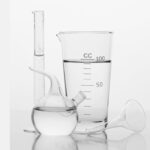Introduction
Exploring the Boiling Time of Water is a fascinating journey into the world of physics and chemistry. Whether you’re a student conducting a science experiment or simply curious about the factors that influence this fundamental process, this article will provide you with a comprehensive understanding of how to delve into the intricacies of water boiling.
Definition of Boiling Time
Before we dive deeper into the exploration, let’s establish a clear definition of what boiling time means. Boiling time refers to the duration it takes for water to transition from its liquid state to vapor, or steam, when exposed to a specific combination of temperature and pressure.

Purpose of Exploring Boiling Time
Understanding the boiling time of water serves several purposes. Firstly, it aids in various scientific experiments, cooking endeavors, and industrial applications. Furthermore, it enables us to comprehend the principles of phase transitions and the behavior of matter under different conditions.
Factors Impacting Boiling Time
Exploring boiling time involves a careful consideration of numerous influencing factors. These factors are crucial for obtaining accurate results and a comprehensive understanding of the process.
Temperature & Pressure Changes
The primary factors that impact boiling time are temperature and pressure. When heat is applied to water, it raises the temperature, which in turn affects the pressure and, consequently, the boiling point. The higher the temperature and pressure, the shorter the boiling time.
Volume of Water
The amount of water you use can significantly affect the boiling time. Larger volumes of water require more energy to heat, resulting in a longer boiling time, whereas smaller quantities boil faster.
Type of Water Used
The type of water used, whether it’s distilled, tap water, or saltwater, can also influence boiling time. Water impurities and dissolved substances may alter the boiling point.
How Pot is Covered
Covering the pot while boiling water can affect the process. A tightly sealed pot can raise the pressure inside, reducing boiling time. Conversely, leaving it uncovered may extend the time required.

Source of Heat Used
The heat source you employ, whether it’s a gas burner, electric stove, or microwave, plays a significant role in determining boiling time. Each heat source has its unique characteristics.
Altitude & Environmental Conditions
Altitude and environmental conditions can drastically affect boiling time. At higher altitudes, the lower atmospheric pressure causes water to boil at a lower temperature, leading to longer boiling times.
Techniques for Exploring Boiling Time
To explore boiling time effectively, you need to employ specific techniques and tools to measure and record the process accurately.
Measuring Temperature with a Thermometer
Using a reliable thermometer to measure the water temperature ensures precision in your experiments. This data is vital for understanding the relationship between temperature and boiling time.
Timing the Process with a Stopwatch
A stopwatch is an essential tool for determining the precise boiling time. Accurate timing helps you make comparisons and draw meaningful conclusions.
Recording Data in a Chart or Graph
Recording your observations in a chart or graph provides a visual representation of the boiling time under different conditions. This makes it easier to analyze and identify patterns.
Experiments to Try at Home
For those who want to explore boiling time through hands-on experiments, there are exciting options to consider.
Cold Water Experiment
Conducting a cold water experiment can be an eye-opening experience. Start with water at different initial temperatures to see how it affects boiling time.

Frequently Asked Questions
Exploring the boiling time of water is essential for various reasons. It aids in scientific experiments, helps in cooking, and finds applications in industrial processes. Understanding this phenomenon also provides insights into the behavior of matter under different conditions.
The primary factors that influence boiling time include temperature and pressure changes, the volume of water, the type of water used, how the pot is covered, the source of heat, altitude, and environmental conditions.
Temperature plays a crucial role in boiling time. When you increase the temperature, it affects the pressure and, consequently, the boiling point of water. Higher temperatures and pressures result in shorter boiling times.
Yes, the volume of water used significantly affects boiling time. Larger volumes require more energy to heat, leading to longer boiling times, whereas smaller quantities boil faster.
The type of water used, whether it’s distilled, tap water, or saltwater, can influence boiling time. Impurities and dissolved substances in water can alter the boiling point, affecting the time required for boiling.
To measure and record boiling time accurately, you should use a reliable thermometer to measure water temperature and a stopwatch to time the process. Recording your observations in a chart or graph provides a visual representation for analysis.
Yes, you can try a cold water experiment at home to understand boiling time better. Start with water at different initial temperatures to observe its impact on boiling time.
At higher altitudes, the lower atmospheric pressure causes water to boil at a lower temperature, resulting in longer boiling times. Environmental conditions, such as humidity, can also influence boiling time.
Absolutely! Understanding the boiling time of water is valuable for cooking. It helps you cook various foods more precisely, particularly when following specific recipes that require accurate boiling times.
Yes, knowledge of boiling time can be applied in industrial processes where precise control over the boiling point is necessary, such as in the production of chemicals or the generation of steam for power generation.
Conclusion
In conclusion, exploring the boiling time of water is not only an intriguing scientific pursuit but also a practical skill in various aspects of daily life. By considering factors like temperature, pressure, volume, and the type of water used, you can gain a deep understanding of this fundamental process. Whether you’re a scientist in the lab or a home chef in the kitchen, knowing the boiling time of water empowers you with the knowledge to make precise and informed decisions. So, embark on your exploration with confidence, and you’ll be amazed at what you discover.



GIPHY App Key not set. Please check settings